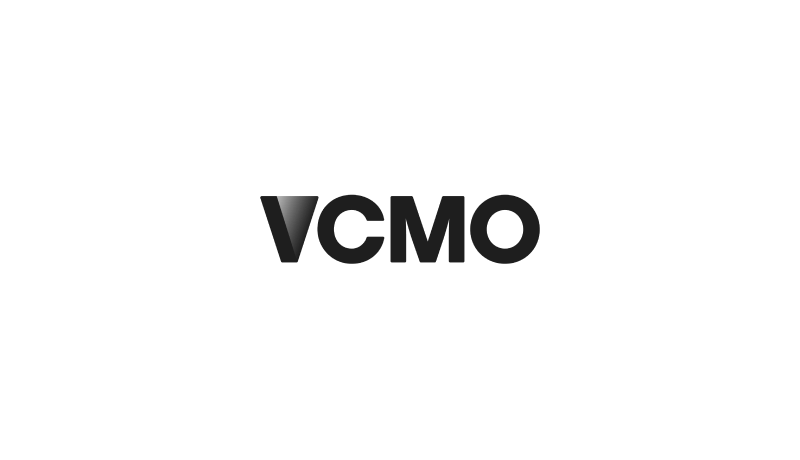From stalled revenue to investor pressure—when your business needs a Fractional CMO.
Introduction: From Symptoms to Solutions
For many businesses, the challenge is not a lack of activity in marketing, but a lack of traction. Campaigns run, agencies deliver outputs, and teams stay busy—yet growth remains elusive. In such cases, the underlying issue is rarely effort; it is leadership. When marketing lacks clear strategy, senior accountability, and alignment with commercial objectives, the result is fragmented execution and underwhelming impact.
This is where the role of a Fractional Chief Marketing Officer (CMO) becomes critical. A Fractional CMO is not an extra pair of hands but a senior leader who provides direction, discipline, and commercial focus without the full-time overhead of a permanent executive. The key is knowing when to make that appointment.
Businesses rarely decide to hire a Fractional CMO in the abstract. More often, the need reveals itself through recognisable signs—symptoms of deeper structural issues in marketing leadership or execution. These range from an absence of strategy and stalled revenue growth to investor pressure and transitional change. Recognising these signals early allows leaders to act decisively, embedding the right level of marketing leadership before problems escalate.
This article sets out the clearest signs your business may need a Fractional CMO, and why acting on them quickly can change your growth trajectory.
10 Signs of a Lack of Strategy & Leadership
The absence of strategic direction is one of the most common indicators that a business is ready for a Fractional CMO. When leadership is missing, marketing becomes fragmented—driven by activity rather than outcomes. These are the most telling signs:
- No defined marketing strategy - Without a documented plan, activity tends to default to ad hoc campaigns. This lack of structure undermines focus, creates wasted spend, and makes it difficult to align marketing with commercial goals.
- Chasing tactics over strategy - When teams jump from one channel to another—pursuing the latest trend without a guiding framework—the result is fragmented execution that rarely compounds into sustained growth.
- Lack of executive marketing leadership - If marketing has no voice at board level, it becomes siloed. Decisions are made tactically, often without consideration of long-term positioning or brand equity.
- Over-reliance on agencies - Agencies can execute effectively, but when they are directing marketing strategy by default, the business risks prioritising channel metrics over commercial outcomes.
- Founder or CEO is too busy - When senior leaders handle marketing themselves, it often falls behind other priorities. As a result, marketing remains reactive rather than strategic.
- Gap in senior expertise - Having executional staff without strategic oversight creates imbalance. Teams work hard but lack the guidance to focus on initiatives that drive measurable business impact.
- Marketing led by non-marketers - When finance, operations, or product leaders oversee marketing “by necessity,” strategy suffers. Without specialist expertise, decisions are often based on instinct rather than evidence.
- Confusion over positioning - If your business cannot clearly articulate who it serves, how it is differentiated, and why customers should choose it, this signals a fundamental leadership gap in marketing.
- No alignment with sales - When marketing and sales operate in isolation, pipelines stall. Misalignment typically reflects the absence of a senior leader bridging the gap between strategy and revenue.
- Difficulty prioritising investments - If every opportunity seems equally attractive—or equally uncertain—the absence of leadership is clear. A Fractional CMO brings discipline to decision-making, ensuring budgets are deployed where returns are maximised.
“When marketing lacks a clear strategy and senior leadership, effort quickly turns into noise. Activity alone does not drive growth—direction and accountability are what transform execution into results.”
Signs of Ineffective or Stagnant Marketing
Even when businesses have active marketing programmes in place, it is common to find that results fall short of expectations. This usually indicates that activity is being prioritised over impact, with teams busy executing campaigns but without the strategic leadership required to align marketing with commercial outcomes. A clear sign of this problem is when sales plateau or decline despite sustained investment. In these cases, marketing may be delivering outputs, but it is not driving the right kind of demand.
Another common indicator is the strain on internal teams. Without a senior leader to prioritise, marketing staff can become overwhelmed, juggling multiple campaigns and channels without a clear sense of direction. This lack of focus leads to diminishing returns, as budgets are spread thinly across too many initiatives. Equally, when marketing is overseen by non-specialists—such as sales or operations leaders—decisions are often made on instinct rather than data, leading to tactical missteps and wasted resources.
The external market also provides signals. A weak online presence, poor visibility in search, or inconsistent brand messaging across channels can all erode credibility. At the same time, competitors with stronger positioning and clearer narratives capture share of voice, leaving your business struggling to engage target audiences. When these symptoms appear together, they point to one conclusion: marketing is underperforming because it lacks the leadership to translate effort into measurable, sustained growth.
Signs of Growth or Transition
The need for a Fractional CMO does not always emerge from stagnation or decline. Often, it becomes most visible during periods of growth or transition, when the business is moving into uncharted territory and existing resources cannot keep pace. In these moments, the absence of senior marketing leadership can slow momentum and expose the company to risk.
A clear example is when a business is preparing for accelerated growth. This may be triggered by new funding, international expansion, or the launch of a significant product or service. In each case, the demands on marketing shift rapidly, requiring scalable strategies, sharper positioning, and disciplined resource allocation. Without experienced leadership, opportunities are missed and investment is diluted.
Similarly, companies hitting a growth plateau often find that existing marketing tactics no longer deliver results. Breaking through this ceiling requires fresh perspective, the introduction of new go-to-market strategies, and the ability to reorient teams around the next phase of expansion. A Fractional CMO can provide both the objectivity and the practical frameworks to overcome this barrier.
Transitions such as mergers, acquisitions, or leadership changes also create pressure points. Aligning brand narratives, integrating teams, and maintaining customer confidence demand more than execution—they require credible leadership at board level. In these scenarios, a Fractional CMO provides the strategic stability needed to guide marketing through uncertainty while positioning the business for its next stage of growth.
“Periods of rapid growth or transition demand more than extra capacity; they demand leadership. Without a senior hand on the tiller, opportunities are lost and risks multiply.”
Rachael Wheatley - Chartered Fractional CMO, VCMO
The Cost of Ignoring the Signs
Failing to act on the signals that your business needs a Fractional CMO can have significant consequences. Left unaddressed, these issues compound over time and erode enterprise value. The most critical risks include:
- Misallocated marketing budgets - Without senior oversight, spend often flows into channels that deliver little commercial return. This creates a cycle of wasted investment where activity continues but outcomes fail to materialise, leaving businesses with rising costs and minimal revenue impact.
- Declining market share - Competitors with stronger leadership gain visibility and customer attention, steadily eroding your share of voice. Even if products and services remain competitive, the absence of marketing direction allows rivals to capture growth opportunities your business misses.
- Lower investor confidence - When marketing performance cannot be measured or explained with clarity, investors question leadership credibility. Weak data, vague strategies, and unclear ROI signals riskier investment, which can depress valuations, slow funding rounds, or derail exit planning.
- Erosion of customer trust - Inconsistent messaging, weak digital presence, or poor campaign execution damages reputation. Customers interpret this as lack of professionalism or market relevance, reducing loyalty and making acquisition more expensive over time.
- Reduced organisational focus - Without a senior leader aligning marketing to business strategy, internal teams become reactive. Effort is scattered across too many initiatives, diverting focus from the activities most likely to generate sustainable growth.
- Slower revenue growth - The cumulative impact of weak leadership is slower top-line performance. Without strategic marketing to drive demand, even well-run operations plateau, leaving the business vulnerable to competitive pressure and unable to scale effectively.
“The cost of inaction is rarely immediate, but it is always cumulative. Lost market share, wasted budgets, and eroded investor confidence are the inevitable outcomes of ignoring the signals for stronger marketing leadership.”
Lydia McClelland - Chartered Fractional CMO, VCMO
Conclusion: Recognising the Inflection Point
Every business reaches moments where the current approach to marketing is no longer sufficient. These inflection points may appear as gaps in leadership, underperforming campaigns, or the pressure of preparing for growth. Recognising the signals early is critical, because the longer they are ignored, the greater the cost in wasted budget, lost opportunities, and diminished enterprise value.
A Fractional CMO offers a strategic solution at precisely these junctures. By providing senior-level expertise without the full-time overhead, they bring clarity, direction, and commercial accountability when it matters most. Their role is not simply to fix underperformance but to embed the systems, processes, and leadership that allow marketing to operate as a true driver of growth.
For CEOs, founders, and investors, the decision is not about adding another resource but about embedding leadership at the right scale. The signs are there—whether stagnating sales, an overwhelmed team, or the demands of expansion. Acting decisively when they appear ensures marketing evolves from fragmented activity into a disciplined, measurable engine for growth.
The question is not whether your business shows these signs—it is whether you are ready to act on them.
Get in touch: If this article reflects what you’re experiencing, get in touch to explore whether fractional marketing leadership is the right fit for your business.
About VCMO
VCMO is a UK-based provider of fractional marketing services, supporting B2B SMEs—ranging from funded scale-ups to mid-tier and private equity-backed businesses—through key moments of growth and transformation. Its Chartered Fractional CMOs and SOSTAC® certified planners embed strategic marketing leadership into organisations navigating product launches, new market entry, acquisitions, and leadership gaps.
What’s a Rich Text element?
The rich text element allows you to create and format headings, paragraphs, blockquotes, images, and video all in one place instead of having to add and format them individually. Just double-click and easily create content.
- By following these tips, you can make sure you’re noticed on LinkedIn and start building the professional connections you need to further your career.
-

Static and dynamic content editing
A rich text element can be used with static or dynamic content. For static content, just drop it into any page and begin editing. For dynamic content, add a rich text field to any collection and then connect a rich text element to that field in the settings panel. Voila!
How to customize formatting for each rich text
Headings, paragraphs, blockquotes, figures, images, and figure captions can all be styled after a class is added to the rich text element using the "When inside of" nested selector system.


Ready to take your marketing to the next level? Let us help you get there.
Subscribe to Our Newsletter
Fractional Edge is our montly newsletter sharing expert opinion on the latest trends in fractional leadership, curated marketing content from leading sources, VCMO events, and much more. Subscribing is quick — just add your name and email.












.jpg)




